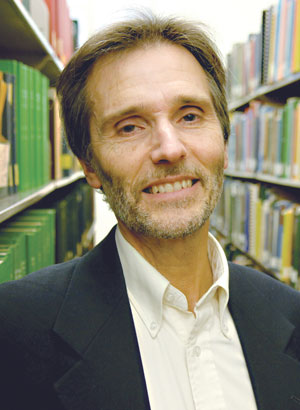Frédéric Bastien’s book La Bataille de Londres has been causing a stir since its recent release with its allegations of back-channel contacts between former Supreme Court chief justice Bora Laskin and justice Willard Estey and the federal and British governments while the court was deliberating over its opinion in the patriation reference.

In contrast to the Quebec media, which treats this story as the equivalent of the WikiLeaks scandal with Bastien as Julian Assange, the English media has mostly greeted it with a yawn.
No one in the English media so far has challenged the interpretation Bastien puts on the documents he obtained from the British archives. A full critique isn’t possible given space limits, but here’s a preliminary reaction.
Bastien’s nationalist perspective drives his analysis and he does so right over the cliff at times. He hates the Charter of Rights and Freedoms, deplores multiculturalism, and fulminates against minority language rights because they affect Quebec’s power to limit English education.
Bastien is entitled to his views, but they lead him to distort the historical record in bizarre ways.
Estey, for example, is charged with having conveyed confidential information to the British government before the
reference landed in court. (Full disclosure: I was Estey’s clerk in 1979-80.)
In a conversation with British high commissioner John Ford in October 1980 — before the matter was in the courts — Estey apparently opined that the legality of former prime minister Pierre Trudeau’s unilateral patriation resolution would be put into question and that the Supreme Court would need two months to decide it.
For Bastien, this was a “warning” to the “imperial government” that the court was going to become involved in the affair and an impermissible violation of the separation of powers.
The trouble is the British government didn’t need a warning that the court might become involved. As Bastien himself shows, the first thing Margaret Thatcher asked when former external affairs minister Mark McGuigan met with her on Oct. 5, 1980, was whether Trudeau’s unilateralist resolution would be subject to court challenge.
There was nothing confidential in what Estey said and not the slightest impropriety in his conversation with Ford. And as for his estimate of the time frame, he was only out by 250 per cent.
Only one of the charges against Laskin appears, on the surface, to have substance. A telegram dated July 2, 1981, from foreign secretary Lord Peter Carrington states that Laskin had told attorney general Sir Michael Havers in confidence that there was a major disagreement among the members of the Supreme Court and that the decision was unlikely to appear before the end of August.
It was extremely unwise for Laskin to speak to anyone about the case while the judges were still deliberating. But Lord Carrington stated later in the telegram that this information wasn’t to be shared with the Canadian government because it was divulged in confidence. It’s thus hard to see how this indiscretion had any impact on Canadian affairs.
The context to this exchange was that the British government was waiting for the court’s decision before introducing Trudeau’s resolution into Parliament.
Trudeau’s plan for the new constitution to be proclaimed on July 1, 1981, was clearly impossible, and the British Parliament would rise after the wedding of Charles and Diana on July 29.
Laskin was advising the British government that it wouldn’t have to deal with the Canadian resolution that month. Was that so terrible? The British government wasn’t a party to the reference. Laskin probably thought he could rely on the discretion of the British attorney general not to share this information with the actual parties.
Another problem with Bastien’s “revelations” is that they stem from summaries of conversations and events passed on from one diplomat to another. Typically, A is reporting on a conversation between B and C as reported by B to A.
With notes reported in indirect speech, it’s impossible to know exactly what was said or how the context of the conversation affected the meaning the parties gave to it.
Historians have to deal with the evidence in whatever form it has survived, but they also have to be aware of its limitations. Bastien admits none but instead piles assumption on assertion until the whole house of cards comes crashing down.
Philip Girard is a legal historian and professor at Dalhousie University’s Schulich School of Law. He’s also associate editor at the Osgoode Society for Canadian Legal History. His e-mail address is [email protected].

 In contrast to the Quebec media, which treats this story as the equivalent of the WikiLeaks scandal with Bastien as Julian Assange, the English media has mostly greeted it with a yawn.
In contrast to the Quebec media, which treats this story as the equivalent of the WikiLeaks scandal with Bastien as Julian Assange, the English media has mostly greeted it with a yawn.